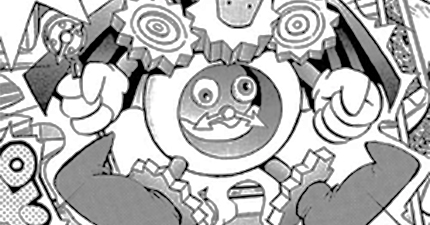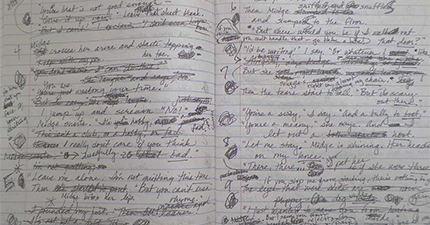I recently saw Twitter user @daniel_the_lion post, in response to another Tweet that asked “What is something most people don’t know is a privilege?”:
Knowing your birth time. https://t.co/OQRCWZqxHp
— Daniel, Time Was (@daniel_the_lion) July 15, 2021
This tweet hit me hard.
If you were born in the USA and in a hospital, you probably don’t have a problem finding your birth time. In US hospitals, birth times are recorded by rounding to the next five minutes. Birth times look like 2:05 PM or like 1:55 AM. You are usually rest assured that your birth time will not be more than two or three minutes off from the actual moment you left your mother’s womb even if your birth, as it most likely did, took more than five minutes. Only in cases where the angles of a chart are in the first or last degree do we have to contest the birth time when it comes to US hospital births.
But not all of my clients know or are assured of their birth times. I don’t ask clients to call their mothers anymore because, sure parents often misremember birth times and even birthdays, or also because not everyone has access to their mothers.
Very few people are born in western hospitals. Most people are born without any record of birth times. Many people are born on days untracked by the Gregorian calendar so that figuring out the western Sun sign of a person involves the cross referencing of multiple calendars and mental gymnastics.
I, myself, was delivered from my mother by my aunt. I don’t have a birth certificate but I do have a coin medallion that my aunt made for me with my birth time and birthday, in Gregorian time, carved into it. All of my grandparents and many of the parents of my friends have birthdays tracked by the lunar calendar instead of the Gregorian one. When I worked with immigrant senior citizens on astrology, much of what we did was comparing calendar systems and figuring out what Sun sign they were.
A lot of immigrants have more than one birthday. We have our biological birthdays, our paperwork birthdays, and our celebrated birthdays. I track my Chinese birthday every year, which is often different from my solar return. I grew up knowing kids who had four birthdays. My cousin uses them interchangeably, deciding on identification cards best suited for the moment. My mom changed her name when she changed her birthday. My grandma was one of the several children her mom, in rural China had, and her mom didn’t think to record her lunar birthday, much less her Gregorian one.
I work with people whose birthdays change from one moment to another. I work with trans people who celebrate the start of their transitions as a birthday. I have done consults with people who prefer to use their transition date as a birthday instead of their biological birth. And guess what? It worked. We talked about things that were important to the client while keeping in mind that this was a transition birthday.
The date and of the time is a making of the body. It’s a moment of incarnation. But our bodies are not only made at the time of our births. They are made and remade constantly throughout the course of our lives. We don’t have one birthday. We have several and we sometimes lose birthdays when we feel that it is time to grieve things.
But I do have a stance on birth times—when a client prefers the date of transition to their biological birth date, when it’s possible, I still like to work with the natal chart overlapped with the transition birth. This is because I believe that doing so creates a longer history of a body. But it’s not mandatory. If someone finds their biological birth too traumatic or hard to talk about and want the session to be about their transition birth adamantly, then we can focus on the transition birth.
With people who want to engage with their birth and who do not have accurately recorded birth times, it’s very important to me to get the sect. A lot of people will know whether they are born during the day or night even if they do not have a birth time. With the sect, even with an estimated birth time, we can get to know a lot about the chart. I first learned about sect from my mom, who told me that day births are more yangqi and night births are more yinqi.
But with people born outside of westernized hospitals—sometimes, the birth time doesn’t matter because western astrology may not be the most relevant system. The birth time is really only a big part of western astrology. If you are talking to parents or grandparents about astrology and they happen to not know their birth time or even their Gregorian birth date, it might not matter. There are nonwestern astrologies that do not use birth times. Western astrology is useful for talking about your relationship with the West but if your life is so far removed from the West that you do not have a western birthday or know English, then there is little point in reading western astrology into your life.
And then there are the people whose quests for birthdays or birth times are a point of pain. There are people whose births are taken from them. This reveals something about the person. My grandma, whose birthday was not remembered by her mother, had deep mother wounds. It means something when a mother doesn’t bother to remember the day of birth for her child. It means something when the birth is not remembered and celebrated. I have adopted clients for whom the quest for a birthday is something much more than a quest for an ascendent. It’s a quest for birth.
Like my trans clients, who seek to complicate the idea of birth, my adopted clients have stories to tell about their birthdays. The birthday is complicated and the birthday is political. People know their birthdays the same way they know their births—through family with all its complications, through vagueness, and through memorial rather than experience. At the end of the day, people who are sure that they have been born are often unsure of the how and why.
I don’t do chart rectification and I don’t think I ever will (but don’t hold me to that), not in the traditional sense of it. I recommend other people who do this for the people who want it. For the time being, I love to work with people with complicated birthdays too much. I love to work with people who have a date of transition, people who have multiple recorded birthdays, and people who have cynical attitudes about their own birthdays.
Natal astrology is about contextualizing the birth. If finding elusive birthdays, remembering different birthdays, and changing your birthday is a part of incarnation, then isn’t it also a part of astrology? The ascendant, in a horoscope, shows the conditions of the birth. These conditions are not recorded for everyone. Isn’t that okay? After all, the work of incarnation is proven, often, in a memory that changes and not a memory that remains constant.


